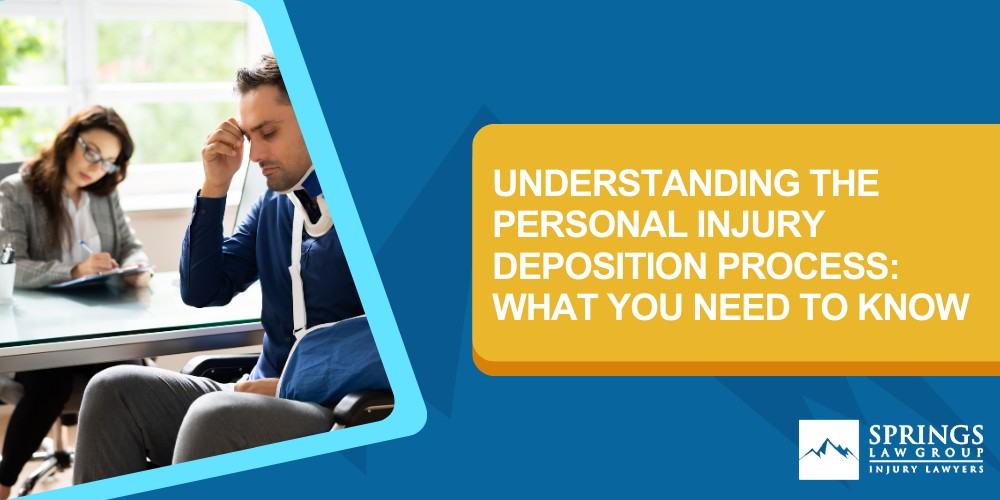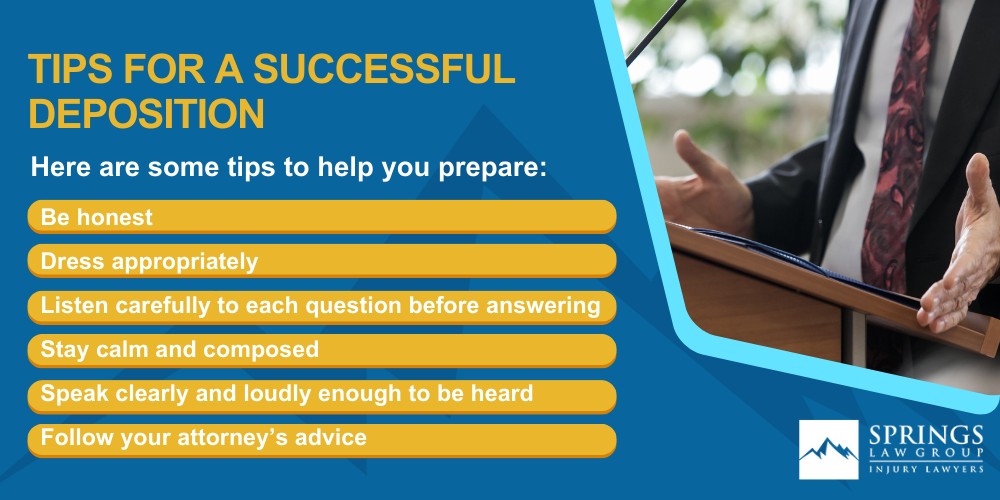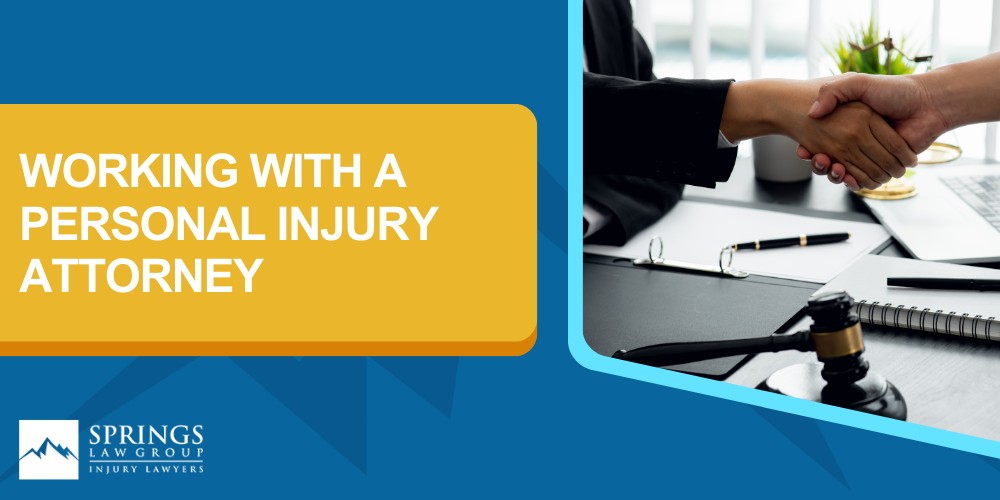Understanding the Personal Injury Deposition Process: What You Need to Know

If you’re involved in a personal injury lawsuit, chances are you will be asked to participate in a deposition. But what exactly is a deposition, and what can you expect?
The deposition process can be nerve-wracking, but there are steps you can take to ensure that you are prepared.
In this article, we will break down the basics of the personal injury deposition process and provide some helpful tips to ensure you are prepared. If you need more help, reach out to the personal injury lawyers at Springs Law Group in Colorado Springs.
What is a Deposition?
A deposition is a legal proceeding where a witness is asked to answer questions under oath. Depositions are part of the discovery process in a lawsuit, which means that they are a tool used to gather information before a trial.

Depositions can be used to help both sides of a case prepare for trial, as well as to determine the strengths and weaknesses of each side’s arguments.
What Can You Expect During a Deposition?
If you are asked to participate in a personal injury deposition, you will be asked to answer questions under oath. The opposing attorney will usually be the one to ask the questions, but your own attorney will be present to protect your interests.
During the deposition, you will be seated and asked a series of questions. The questions may be focused on your memory of events, your personal history, or other relevant information related to the case.

It’s important to note that your deposition will be recorded, either by video or by a court reporter. This means that everything you say during the deposition will be on the record and can be used against you later in court if necessary.
Tips for a Successful Deposition
Preparing for a deposition can be a stressful experience, but with the right mindset and preparation, you can make the process go smoothly.

Here are some tips to help you prepare:
- Be honest. If you don’t know the answer to a question, it’s okay to say so. Lying or trying to mislead the opposing attorney can only hurt your case in the long run.
- Dress appropriately. While you don’t need to wear a suit and tie, you should dress in a way that is respectful and shows that you are taking the process seriously. Avoid wearing anything too casual or revealing, as this can give a negative impression to those involved in the case.
- Listen carefully to each question before answering. If you don’t understand a question, ask for clarification before answering. This can help you avoid giving an answer that is inaccurate or misleading.
- Stay calm and composed. If you feel anxious or upset, take a deep breath and focus on the question.
- Speak clearly and loudly enough to be heard. This can help ensure that your answers are accurately recorded and understood.
- Follow your attorney’s advice. Your attorney protects your interests during the deposition. Follow their advice and guidance to ensure you present yourself and your case in the best possible light.
A deposition can be a critical moment in your legal case, and it’s important to prepare for it carefully. Following these tips can increase your chances of success and ensure you present yourself and your case in the best possible light.
Working With a Personal Injury Attorney
If you’re involved in a personal injury case and facing a deposition, working with an experienced personal injury attorney is important. An attorney can help you understand the deposition process, prepare you for the questions, and protect your interests throughout the process.

At Springs Law Group, our team of personal injury attorneys is dedicated to helping our clients navigate the legal system and achieve the best possible outcomes. We understand that the deposition process can be overwhelming, so we work closely with our clients to ensure they are prepared and supported every step of the way.
If you have questions about the personal injury deposition process or want to speak with one of our attorneys about your case, please contact us today. We offer free consultations and are always here to help.

